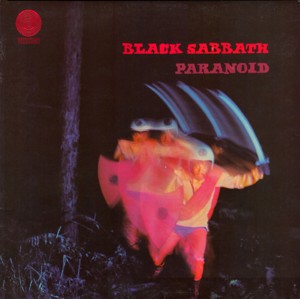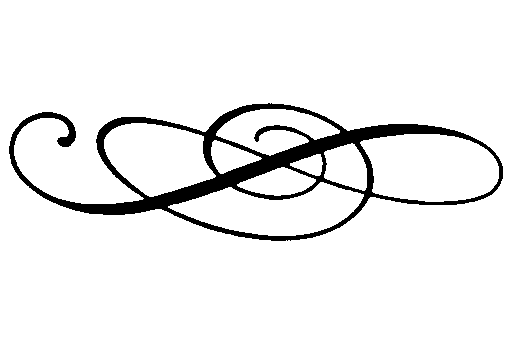

 Black Sabbath
Black Sabbath
| Release date | Label | Producer | Genre | Length | More info |
| 1970.09.18 | Vertigo | Rodger Bain | Classic Heavy Metal | 42:02 |  
 |
Heavy Metal for Dummies: Your Ozzy-approved guide to Dinoriffs and Friendly Brutality.
Background
A slightly simplified model of musical history tells us that when Black Sabbath erupted onto the British rock scene in the 1970s, they quickly hit it off with the general public, but had to struggle to gain critical support, and, in fact, most of their early output only made it to the "golden fund" in retrospect. No big surprise here, really: 1970 was the year when "progressive" approaches hit their stride, and most evaluations of contemporary musical product placed heavy emphasis on lyrical depth, astute playing technique, and compositional complexity - aspects that Sabbath did not even begin to care about until their brief (but surprisingly fruitful) flirtation with prog values in 1973-75. Much like the Stooges on the other side of the ocean, Black Sabbath were "proto-punks", taking the shortest possible route to achieve their stated goals - and do not let it fool you that, instead of sexual or social themes, they chose "Satanic" concepts for their music; really, early Sabbath were as "punk" as they come, with a brutal-minimalistic aesthetics that made them so very different from the waves of heavy metal that followed in their wake (in fact, different even from their own post-Ozzy career). No wonder the band was such a huge influence on early Nineties grunge - certainly it wasn't because they were "metal", it was because they cut straight and hard through all the superficial bullshit.
That said, the band's first album, even if it did kinda sorta invent classic heavy metal, still had one foot planted quite firmly in the psycho-blues-rock spiritual explorations of its time: there was so much inexperienced instrumental jamming on it, it was only natural to mistake them for a dumbed-down, leadened-up imitation of Cream. In order to properly make their mark on the world, the band needed to truly unleash the commercial potential of the "simple, stupid, and brutal" approach - to show that it went fine and dandy along with a pop sensitivity. That very year, Led Zeppelin demonstrated that musical heaviness was perfectly compatible with deep folk aspirations on Led Zeppelin III; Deep Purple metallized good old rock'n'roll with Deep Purple In Rock; but it really fell to Black Sabbath, of all people, to show that the heaviest, most ferocious type of metal music invented up to that point could also be... fun. Which, coincidentally, was the one thing that critical opinion cared the least about in 1970, but then the same critics have also despised Paul McCartney's Ram for decades for much the same reasons, so to hell with them.
Some basic factsRiding on the success of the song ʻParanoidʼ, which became Sabbath's greatest success on the single charts, and, to a lesser extent, on the success of ʻIron Manʼ, which was not a big hit but still became one of the most overplayed classic rock radio staples of all time due to the insane catchiness of its riff, Paranoid the LP also became their greatest commercial success - ironically, their one and only #1 LP on the UK charts until the reunion album 13, 43 years later (a perfect argument in support of the "21st-century-music-down-the-drain" theory, but we will not go into that here). In terms of objective innovation, the record was arguably not as mind-blowing as the self-titled debut, where all the dark heavy stuff first appeared, or as the following Master Of Reality, which consciously took the "heaviness" thing to a whole new level; however, in terms of average appeal to the average classic rock fan, it is probably the most satisfactory package that money could ever buy, and if you are not a certified metalhead, but rather just a simple person who likes his ʻSunshine Of Your Loveʼ and his ʻFoxy Ladyʼ and his ʻJumpin' Jack Flashʼ, thank you very much, then it is highly likely that Paranoid will be your favorite BS album, too. And not that there's anything wrong with that, either.
For the
defense
This is a simple album, and it should deserve a simple-as-heck defense. So, first of all, it has no bad songs on it (ʻRat Saladʼ could be a possible exception, but I really like the riff, and the confusticated drum solo is actually less than a minute long - more like a parody on drum solos, if you ask me, than an actual attempt at competing with Ginger Baker or John Bonham). Second, it has no bad songs on it. Third, Tony Iommi was in his first year of Riff God tenure, so let us have a "Top 5 Paranoid riffs" list here, in no particular order of preference:
(1) ʻWar Pigsʼ, 1:45-1:50. If the first two notes did not already get you, the next descending three surely will. I have no idea what it is, a cannon blasting off, a Panzer tank sliding over a ditch, or the Gates of Hell opening up to receive another batch of poor souls, but whatever it is, it's a super-simple, mind-blowingly effective way to generate that Sabbath-patented sense of doom in three seconds' time. Of course, it won't work with any other type of guitar tone than Tony's "Mother Earth" signature, but that goes without saying.
(2) ʻParanoidʼ, 0:12-0:18. Yes, the intro riff is noticeably more complex, but, like I said, this album is not about complexity, it is about maximum effect. I am almost offended that there are actually a whole three chords to that riff; couldn't they have done it with two?.. no, they probably couldn't. What the heck is it, really, about that supertight chuggin' pulse at the heart of that riff? Led Zeppelin had already ridden it with their ʻCommunication Breakdownʼ, but you could say that Tony really went to the extreme here, unleashing its full potential - this one sounds so much fuller, and the fact that it returns to the same chord where it began gives it a sort of satisfactory completion (triumphantly realized when they allow themselves to abruptly end the song on its last note, something that would have been impossible for Zep). Is it actually a "paranoid" riff at all? It sounds more like a super-focused knight in heavy armor charging ahead at full speed in a jousting tournament. Then again, if it's a case of paranoia giving rise to tightly controlled aggression, why not?
(3) ʻIron Manʼ, 0:28-0:34. Okay, this one is almost disgustingly predictable. But here's what's strange: unless my mind is playing tricks on me, the riff has a mighty "Celtic" vibe to it - I keep wanting to hear it with bagpipes, sort of like an Irish reel or something. I'm pretty sure that this folk dance association is the main reason for the catchiness, and that Ozzy's remark that the riff sounds "like a big iron bloke walking around" should definitely be amended to "like a big iron bloke trying to engage in a pagan ritual". This is easily the band's most successful try at generating a "heavy-friendly" vibe, as opposed to "heavy-evil", one where the heaviness would not be compromised by the friendliness, but the friendliness would not be obscured by the heaviness, either. I wonder if that riff could actually scare a 3-year old toddler? It probably shouldn't. It's like The Friendly Giant or something.
(4) ʻElectric Funeralʼ, 0:01-0:04. Another triumph of repetitive simplicity over common sense. But this time, it is the wah-wah that is the key to success, and there might be some additional effect they're putting on it, I'm not sure (also multi-tracking). Anyway, this is arguably the most evil-sounding riff on the album, which is only too right, considering how the song is all about nuclear apocalypse and shit. It almost smells of nuclear fallout, in a way, at the same time also resembling the evil cackle of the Lord of Darkness whose plan has finally worked out so well. A little cartoonish, of course, to be used in a documentary on Hiroshima, but perfect for any... um, cartoon that happens to have nuclear explosions in it. Are there cartoons with nuclear explosions in them? Come to think of it, I'm not sure I even want to know.
(5) ʻFairies Wear Bootsʼ, 1:15-0:18. To say that the lyrics in this song do not match the music is an understatement - regardless of whether the words were inspired by the band's encounter with skinheads or whether they simply came from smoking too much pot. But never mind the words, this riff is the first, and one of the best, examples of the "Iommi crush": the first minute of the song toys with you, slowly, but never completely preparing you for the stormwave that bursts through the speakers at the 1:15 mark. It is also a great case of loud/quiet dynamics interaction, where big crashing waves of sound alternate with humbler trickles, only to knock you off your feet again at the end of each verse. Follow my advice - play this real loud on headphones and just let your mind be thrashed and thrust about by these waves; it is a far more psychedelic experience than anything ever played by the Grateful Dead (no offense to Mr. Garcia).
Any honorable mentions? Plenty - in fact, had I had more time, this could have easily been transformed into a Top 10 with the addition of ʻWar Pigsʼ, 2:07-2:10 (funky!); the verse riff of ʻElectric Funeralʼ (quite derivative of Zeppelin's ʻHeartbreakerʼ, but with a suitably more doomy atmosphere); ʻHand Of Doomʼ (I almost listed it in the Top 5, but there has to be a quota on series of three doom-laden descending notes, I'd say); ʻRat Saladʼ, 0:28-0:36 (the resolving variation ending with that high-pitched guitar scream - note how much Mr. Iommi likes ending his songs on a real high note, as if shooting them out into the stratosphere?); and ʻFairies Wear Bootsʼ, 2:41-2:46 (the bridge riff that introduces the "devil vibrato" which would soon be put to even better use on ʻInto The Voidʼ).
And a very, very special mention to the only song on here without a properly memorable riff - ʻPlanet Caravanʼ, which, in a certain sense, might be the most important song on the record, because it shows that Black Sabbath are actually more than just an unstoppable heavy riff machine, and that they can create a wonderful atmosphere by other means as well. Could you even assign it to a particular genre? The rhythm seems to be Latin in essence, but Ozzy's Leslie-processed vocals are Eastern-psychedelic, and Iommi's solo is, of course, pure /acid?/ jazz (hey, that solo could actually have been played by Garcia - I'm pretty sure it has that ʻDark Starʼ vibe to it).
For the prosecution
Well, it's a dumb album, make no mistake about it. Geezer Butler's lyrics are not known for subtlety of imagery or intricacy of verbal means - although, let's face it, the man just tells it as it is, and thank God they have Ozzy to sing them, because if they had somebody like Uriah Heep's David Byron... anyway, the worst thing about it is that it is really, really tempting to sing along with Ozzy, but no temptation in the world will lead me to invest any emotion into "robot minds of robot slaves lead them to atomic graves".
Musically, though, all I can find is minor quibbles. Some of the tracks are stretched out a bit too much. The drum solo is okay if it's really a "parody", but even if it is, it sounds like a serious betrayal of their own identity in favor of satisfying cliches imposed on them from outside (which is odd, considering how Sabbath always remained fairly unintegrated into the general rock circles of the time). The ending of the album is a little unsatisfactory (what, just a simple unresolved fadeout? They would eliminate this problem on Master Of Reality, but not here). Ozzy's manner of following the main riff with the vocals like a loyal dog on a leash sometimes borders on irritating, etc. etc. But in the end, all these problems are just minor dents that in no way prevent me from fully enjoying this stuff all the way through.
Conclusion
Is it really the best Black Sabbath album? An unanswerable question, as it is with all great bands - it is, if this is the kind of sound and vibe you are looking for, or if you measure a band's greatness by its presence on classic rock radio. It does make a lot of sense to begin a phrase with "Paranoid is overrated..." if you end it with "...so I am going to pay equal attention to all of this band's albums from 1970 to 1975, and I am even ready to give Technical Ecstasy a bit of a chance". But if you end it with "...because it has a lot of silly, poppy, overplayed classic rock radio anthems", well, keep in mind that nobody really forced you to listen to classic rock radio in the first place, and that the creators of ʻIron Manʼ bear no responsibility for the one-way tastes of radio programmers, nor did they ever owe you free copies of Vol. 4 and Sabotage to stimulate your musical education.
| Melody | Voice | Mood | Production | Innovation/Influence | Where it belongs | RYM preference | |
 |
 |
 |
 |
 |
 |
#14 (Apr 03, 2016) |

| Previous entry | Main page | Next entry |